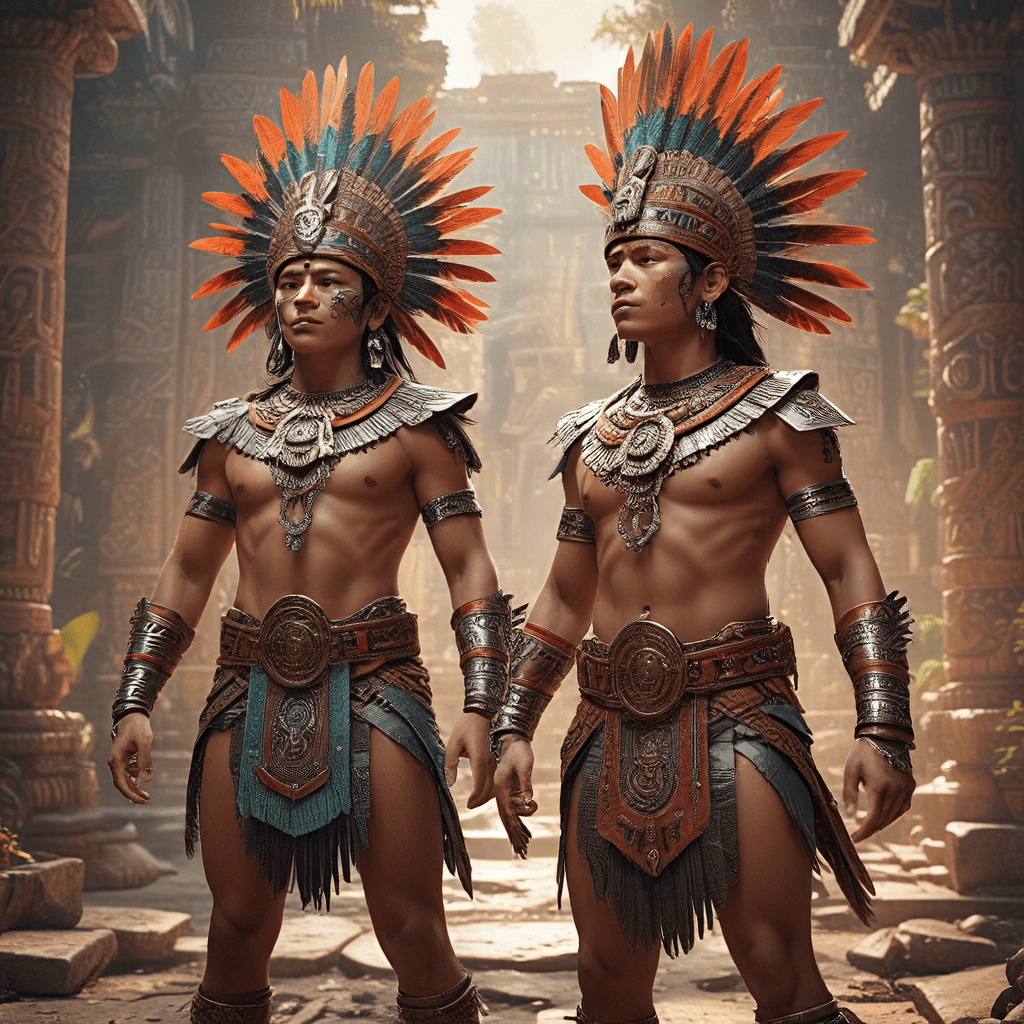The Role of Animals in African Mythological Symbolism
Introduction
In African tradition, animals are more than just creatures that inhabit the environment. They hold a profound significance in mythology, where they represent various aspects of nature and are revered as embodiments of spiritual forces and guides. From the majestic lion to the elusive bird, each animal embodies a unique set of attributes that have shaped African cultural beliefs and practices for centuries.
The Lion: Power and Royalty
The lion is perhaps the most iconic animal in African mythology, symbolizing power, strength, and royalty. Its regal appearance and formidable presence have earned it the respect and admiration of many African cultures. In some traditions, the lion is considered the king of the animal kingdom and is associated with leadership, courage, and authority. Its presence in stories and rituals often signifies strength, dominance, and the ability to overcome challenges.
The Elephant: Wisdom and Endurance
The elephant is revered in African mythology for its wisdom, longevity, and enduring strength. Its large size and intelligence have made it a symbol of stability, patience, and the accumulation of knowledge over time. In many cultures, elephants are associated with the ancestors and are believed to possess a deep understanding of both the past and the future. Their presence in myths and legends often signifies the importance of wisdom, experience, and perseverance.
The Snake: Fertility and Renewal
Snakes hold a complex and often ambivalent position in African mythology. While they can represent danger and treachery, they are also revered as symbols of fertility, renewal, and transformation. In many cultures, snakes are associated with the earth and are believed to possess the power to heal and protect. Their shedding of skin is seen as a metaphor for rebirth and the cyclical nature of life and death.
The Bird: Messengers and Protectors
Birds are ubiquitous in African mythology, representing a wide range of meanings and associations. They are often seen as messengers between the worlds of the living and the dead and are believed to possess the ability to carry messages and prayers to the divine. In many cultures, birds are also associated with protection and are believed to have the power to ward off evil spirits and bring good fortune.
The Leopard: Cunning and Stealth
The leopard is a powerful predator that symbolizes cunning, stealth, and agility in African mythology. Its spotted coat allows it to blend into its surroundings, making it a formidable hunter and a symbol of strategic thinking. In some cultures, the leopard is associated with deception and cunning, while in others, it is revered for its ability to navigate challenges and achieve its goals.
The Antelope: Grace and Swiftness
The antelope is known for its grace, speed, and alertness. In African mythology, it represents agility, beauty, and the ability to escape danger. The antelope's ability to leap and bound with ease symbolizes freedom, movement, and the joy of life. Its presence in stories and traditions often signifies the importance of living in harmony with nature and embracing the beauty of the world.
The Hyena: Scavengers and Outcasts
The hyena is a fascinating and often misunderstood creature in African mythology. It is depicted as a scavenger and an outcast, often associated with darkness, treachery, and laughter that resembles a human cry. In some cultures, the hyena is believed to possess magical powers and is associated with witchcraft and sorcery. Its presence in myths and legends often serves as a cautionary tale about the dangers of betrayal and the consequences of living outside the boundaries of society.
The Spider: Tricksters and Web-Weavers
The spider is a versatile figure in African mythology, representing both trickster and creator. In many cultures, the spider is associated with wisdom, cunning, and the ability to spin intricate webs that trap prey. Its presence in stories often signifies the importance of deception and the power of strategy. However, the spider is also revered as a creator, particularly in West African traditions, where it is credited with weaving the first cloth and bringing knowledge to humankind.
Conclusion: Animals as Embodiments of Natural Forces and Spiritual Guides
Animals hold a central place in African mythology, serving as embodiments of natural forces, spiritual guides, and symbols of human traits. They represent the interconnectedness of all living beings and the deep reverence that African cultures have for the beauty and power of the natural world. Through their presence in stories, rituals, and art, animals continue to inspire and guide the people of Africa, reminding them of their place within the wider web of life.
FAQs
Q: What is the most important animal in African mythology?
A: The lion is considered the most iconic animal in African mythology, symbolizing power, strength, and royalty.
Q: What does the elephant represent in African culture?
A: The elephant is revered for its wisdom, longevity, and enduring strength. It is often associated with stability, patience, and the accumulation of knowledge over time.
Q: Why are birds considered sacred in many African cultures?
A: Birds are seen as messengers between the worlds of the living and the dead and are believed to possess the ability to carry messages and prayers to the divine. They are also associated with protection and are believed to have the power to ward off evil spirits and bring good fortune.


